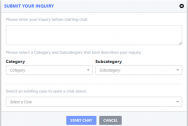Social Networking and HR
How social networks can extend the reach of the Human Resources Department
Anyone who thinks online social networking sites are just a passing fad needs to consider a few cold hard statistics. Facebook alone claims over 800 million users worldwide. That’s more than twice the total US population! It also happens to be more than the combined populations of France, Italy, Germany, UK, Ireland, Russia, Spain, Belgium, Greece, Sweden, Norway, Denmark, Finland, Canada, Mexico, Switzerland, Austria, and Australia! Add in LinkedIn users, Twitter users, and users of other social networking sites, one can readily conclude that this is not a fad but rather a powerful and growing phenomenon.
It’s not unreasonable to assume that a majority of employees in any one company are already utilizing one or more sites to interact with their friends, family and coworkers. However, HR departments have yet to really integrate their current resources (such as employee portals and knowledgebase services) with websites like Facebook and others. Frankly, in recent years, most businesses have only attempted (some successfully) to tap into the vast marketing power of social networking sites.
Since your employees are already communicating with each other (and their peers in other businesses) via these services, why not embrace the movement and expand the capabilities internally? LinkedIn, for instance, is the #1 website for recruiters and headhunters. Facebook is best known for creating and promoting communities of people with like interests. Aren’t recruiting and building a sense of community key functions of HR departments? One of the reasons for Japan’s economic growth was that corporations recognized the importance of treating employees like family and as integral members of the organization. More workers in Japan than in any other country spend their entire careers with the same company. As any business executive knows, tenure equates to productivity, while high employee turnover can be very unproductive.
Human Resource departments most likely already have the business and personal email addresses of every current and many former employees. By tying employees’ Facebook and LinkedIn (or other services) accounts into the corporate account, the business can instantly create an environment for building relationships with employees, encouraging feedback, and ultimately fostering new and creative ideas that will make the company stronger and more competitive – not to mention drawing the interest of potential new employees and customers.
Though there are many online social networking sites, clearly Facebook and LinkedIn are the largest and most popular with business users. However, they have significant differences and are not mutually exclusive. Any business could (and arguably should) maintain accounts on both sites. LinkedIn is geared mainly towards business professionals desiring to share their work experience with others, in addition to maintaining memberships in specialized user groups. As mentioned earlier, LinkedIn is the #1 internet destination for recruiters seeking qualified candidates for open jobs. LinkedIn users typically list their entire work history and core business strengths online. Users have an open profile which anyone can see, and generally a more detailed profile available to their approved connections. LinkedIn supports “Three Degrees of Separation”:
1st Degree – Your Connections
Two Degrees away – Friends of friends, each connected to one of your connections
Three Degrees away – Reach these users through a friend and one of their friends
It is easy to see how this can exponentially expand your reach.
Facebook is much more of a true “social” network. Users have profiles, which include both personal and professional interests. They can post pictures, videos, and other material for their “friends” to see. In Facebook, users can also show their approval of a specific post by “liking” the post. Facebook integrates with other services such as Foursquare.com to allow users to track their friends’ current locations, favorite restaurants, etc.
Understanding the features and differences between these services will help HR departments expand their services into the online social networking world. Corporate HR departments embracing social networking services can take a page from the Japanese philosophy in business,believing that “the sum is greater than the parts”. They can quickly begin to realize significant dividends in their investment, since the employees are already online and individually taking advantage of the services. Employees will be happier, more engaged in the overall business, and will truly feel they are a valuable member of the corporate community.





Do you believe there are any downsides?